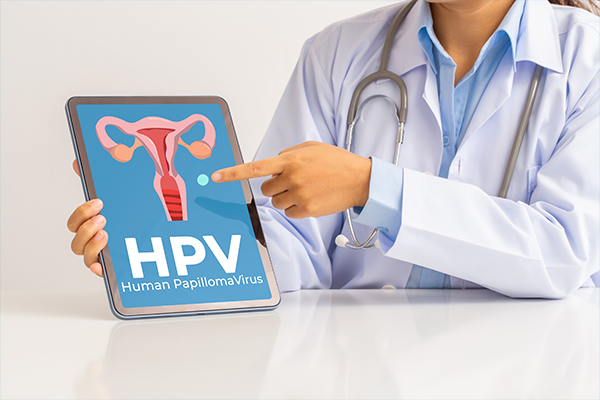
The HPV vaccine is effective, and safe, and should be administered to girls starting from 9 to 14 years. School-going girls should be vaccinated, and if not vaccinated by 14 years, it can still be administered until 26 years, with the vaccine being licensed for use up to 45 years. In developed countries, even boys are getting vaccinated. Anyone who can afford vaccination for boys should get it done because boys can also be affected by the HPV virus, leading to other cancers like cancers of the oral tract or anus. That is why HPV vaccination is a must for both boys and girls before their sexual debut to achieve the best results.
Synopsis
The Importance of Regular Pap Smears and HPV Testing
When it comes to women's health, regular Pap smears and HPV testing are like your personal health detectives. They play a crucial role in catching potential issues early, especially when it comes to cervical cancer. Let's dive into why these tests are so important and how they can make a difference in your life.
What is a Pap Smear?
Think of a Pap smear as a routine check-up for your cervix. During this quick and simple procedure, a healthcare provider collects cells from your cervix using a small brush or spatula. These cells are then examined under a microscope to spot any abnormalities. It's a bit like a detective looking for clues to ensure everything is in order. This is a new form of Pap smear. It is called liquid-based cytology.
What is HPV Testing?
HPV testing is another essential tool in your health toolkit. Human papillomavirus (HPV) is a common sexually transmitted infection, and certain high-risk strains can lead to cervical cancer. HPV testing involves collecting a sample of cells from your cervix, just like a Pap smear, and checking for the presence of these high-risk strains. It's like having an extra layer of security for your health.
Why Are These Tests Important?
-
Early Detection of Cervical Cancer: Imagine having a superpower that lets you catch problems before they become serious. Regular Pap smears and HPV testing do just that. They can detect abnormal cells early, making cervical cancer highly treatable if caught in time.
-
Prevention of Cervical Cancer: These tests can identify changes in cervical cells that might lead to cancer. By catching these changes early, your healthcare provider can recommend treatments to prevent cervical cancer from developing. It's like stopping a problem before it even starts.
-
Monitoring and Managing HPV: Since HPV is a leading cause of cervical cancer, regular testing helps keep an eye on any high-risk strains. If you test positive, your healthcare provider can monitor you closely and take action if needed. It's all about staying one step ahead.
-
Peace of Mind: Knowing you're taking proactive steps to monitor your health can bring a sense of relief. Regular screenings mean you're staying informed and in control of your health, reducing anxiety and stress.
Who Should Get Tested?
Guidelines for Pap smears and HPV testing can vary, but generally, women should start getting Pap smears at age 21 and continue every three years if results are normal. Women aged 30 and older might opt for co-testing (Pap smear and HPV test) every five years if the results are normal. Always consult with your Gynaecologist to determine the best schedule for you.
Overcoming Barriers to Testing
Despite their importance, some women face barriers to regular screenings. Let's tackle these challenges together:
-
Access to Healthcare: Finding affordable and convenient healthcare services is key. Look for low-cost or free screening programs and clinics in your area.
-
Education and Awareness: Understanding the importance of these tests can encourage more women to get screened. Share information with friends and family to spread the word.
-
Support and Counseling: If you feel anxious about the tests, seek support from healthcare providers or counselling services. Feeling comfortable and confident can make a big difference.
Note
The HPV (Human Papillomavirus) vaccine is crucial in preventing infections caused by HPV, a common sexually transmitted virus. It's important to note that HPV can infect anyone, even those with only one life partner, as it can be transmitted through intimate skin-to-skin contact. The virus often remains in the body for extended periods without causing any symptoms, making it difficult to detect. This asymptomatic nature means that individuals can unknowingly carry and transmit the virus. Over time, HPV can lead to serious health issues, including cervical cancer and other types of cancer. Therefore, vaccination is a key preventive measure to protect against the long-term risks associated with HPV.

Conclusion
If you're in Delhi and looking for a reliable healthcare provider, consider Manipal Hospitals Delhi. They offer comprehensive women's health services, including Pap smears and HPV testing. With a team of experienced healthcare professionals, Manipal Hospitals Delhi is dedicated to providing high-quality care and support for all your health needs. Don't wait—schedule your screening today and take charge of your health!
FAQ's
Women should start getting Pap smears at age 21 and continue every three years if the results are normal. Women aged 30 and older might opt for co-testing (Pap smear and HPV test) every five years if the results are normal.
Regular screenings provide peace of mind, early detection of potential issues, and prevention of serious health problems. They help women stay informed and in control of their health.
Barriers include access to healthcare, lack of awareness, and anxiety about the tests. Overcoming these challenges involves finding affordable healthcare services, educating oneself and others, and seeking support from healthcare providers.
Vaccinating before sexual debut ensures the best protection against HPV, as the vaccine is most effective when administered before any exposure to the virus.
Yes, boys should also be vaccinated against HPV. The virus can cause cancers of the oral tract, anus, and other areas in males. Vaccinating boys helps prevent these cancers and reduces the spread of HPV.



















 5 Min Read
5 Min Read














